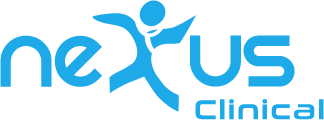
Connecting Medical Practices: Embracing the EHR Solution and Interoperability
- Salient points for switching from paper charts to EHR
Connecting Medical Practices: Embracing the EHR Solution and Interoperability
- Salient points for switching from paper charts to EHR

The healthcare industry has undergone a significant transformation with the advent of technology. With electronic health record / EHR software and their interoperability, clinicians can manage their patient’s data and care much more efficiently.
EMRs are crucial tools that support the practice workflow, documentation, and billing processes. And interoperability enables the transfer of data and information between different systems.
So, let us delve deeper into EHR solutions and interoperability and explore how they are revolutionizing medical practices.
Overview of EHR / EMR Solutions
EHR software has replaced paper-based medical records in most clinics.
EHRs allow staff to create, access, and share patient information securely. EMR solutions provide a variety of features, including patient demographics, lab tests, vital signs, prescriptions and medications, immunizations, and more.
So, such features of EMR software have allowed providers to handle the large volumes of data easily that are regularly generated.
Benefits of EHR Software
There are many benefits to employing EHR solutions in clinics. One of the most significant benefits is the quality of patient care.
EMR software helps to reduce errors, improve collaboration between medical professionals, and allow doctors and clinicians to provide timely care.
Additionally, EMR solutions improve efficiency and workflow through features such as scheduling appointments, sending reminders, and managing billing and payments.
So, with the shift toward value-based care, EMR solutions are critical in keeping medical practices financially sustainable. Nexus Clinical offers an ONC-certified EHR and PM system. With it, you can easily manage your practice and work in a collaborative environment.
Interoperability in EHR Solutions
Interoperability in EHR solutions refers to the capacity of different EMR systems to exchange and access patient data and information seamlessly.
With interoperable EMR solutions, multiple systems within a medical practice can share and access patient data, enhance medical communication and collaboration, and improve diagnosis and treatment plans.
Interoperability can also have a significant impact on care coordination, reducing readmissions, and reducing costs for both providers and patients.
There is still a greater need for interoperability to become more accessible and widespread, and many companies are working toward this goal.
EHR Solution and Interoperability Challenges
Adopting EHR solutions and achieving interoperability can be challenging for many medical practices. Medical practice owners and clinicians may face difficulty navigating various EHR software, managing security and regulatory compliance, and dealing with technical issues.
Additionally, some medical practices may need to obtain additional training for their staff and invest in significant workflow changes. However, most EMR providers offer comprehensive support and training to ease this transition and ensure a smooth adoption process.
Solutions to Achieving Interoperability
There are several initiatives and standards aimed at achieving interoperability in EHR systems.
The Office of the National Coordinator for Health Information Technology (ONC) has developed a set of standards and guidelines for EHR systems to ensure interoperability.
Additionally, the Fast Healthcare Interoperability Resources (FHIR) standard has gained popularity as a way to facilitate interoperability between EHR systems. FHIR provides a way for EHR systems to exchange data in a standardized format.
Another solution is the use of Application Programming Interfaces (APIs) to enable communication between EHR systems.
Conclusion:
EHR solutions and interoperability are revolutionizing clinics in the USA. These technologies are critical in enhancing patient care and managing practices efficiently.
While there are challenges that come with adopting EMR solutions and achieving interoperability, it is essential to acknowledge that these technologies are here to stay, and will continue to evolve.
The future of medical practices will be driven further by technological advancements, and it is up to medical professionals to embrace these changes to provide the best possible care to their patients.





